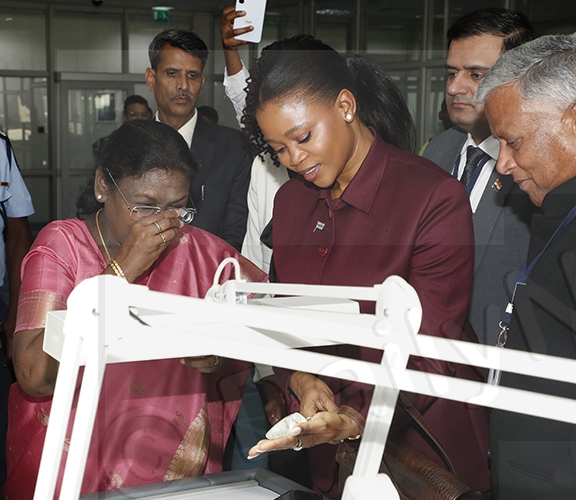Heat wave high prices abort farmers dreams
08 Mar 2022
Most farmers had high hopes for a good yield following promising rains at the start of the ploughing season.
But the heat wave and such factors as increased prices of inputs are likely to affect the harvest.
Speaking to BOPA on Sunday, a Mosisedi farmer, Mr John Phirinyane said some of his crops wilted due to the heat wave and a prolonged dry spell.
“It is a loss, crops affected by heat will not produce as expected,” he added.
Prices of most inputs such as fertilizers, diesel, chemicals as well as tractor parts have drastically increased, which led to reduced hectorage.
“We had to adjust our budgets as prices have doubled, this means cutting back on a number of expenses including ploughing less hectares,” he said.
He said they were also affected by weeds, especially on beans, explaining that some chemicals were not to be applied amidst high temperatures as was the case.
Mr Phirinyane highlighted that COVID-19 was among the challenges that derailed their ploughing plans.
He said his workers were at some point quarantined due to COVID-19, which led to suspension of operations while it was also difficult to import tractor parts that were not available locally.
For his part, former Minister of Agricultural Development and Food Security, Mr Patrick Ralotsia, who is also a farmer in Kanngwe, indicated that challenges faced by farmers were a danger to food security.
He shared the sentiments with Mr Phirinyane, that high prices of inputs, unreliable rains which led to high temperatures and unreliable workers, affected the quantity and quality of yields.
Pertaining to unreliable rains, Mr Ralotsia said Botswana was a drought-prone country, hence farmers should understand when to grow which crops.
He said escalating prices of inputs would eventually lead to some farmers giving up and advised on the need for subsidies on some inputs such as diesel and chemicals.
The former minister explained that poor crop management, which included overpopulation and not weeding also led to poor harvests.
“Produce from such fields will be of poor quality and attract low prices,” he said.
Mr Ralotsia noted that local farm workers did not take their jobs seriously, as most of them disappeared after getting paid, which he said affected production.
He advised that for farmers to effectively and efficiently feed the nation, they had to meet and share ideas on how to add value to their produce.
“No one can successfully work alone, let us share our experiences and offer advice where necessary, we should cooperate rather than compete,” he said.
He was of the view that deliberate policies had to be formulated to make commercial farmers of note, adding that farming should not impoverish farmers, but elevate them to greater heights. ENDS
Source : BOPA
Author : Thato Modiakgotla
Location : KANYE
Event : INTERVIEW
Date : 08 Mar 2022





